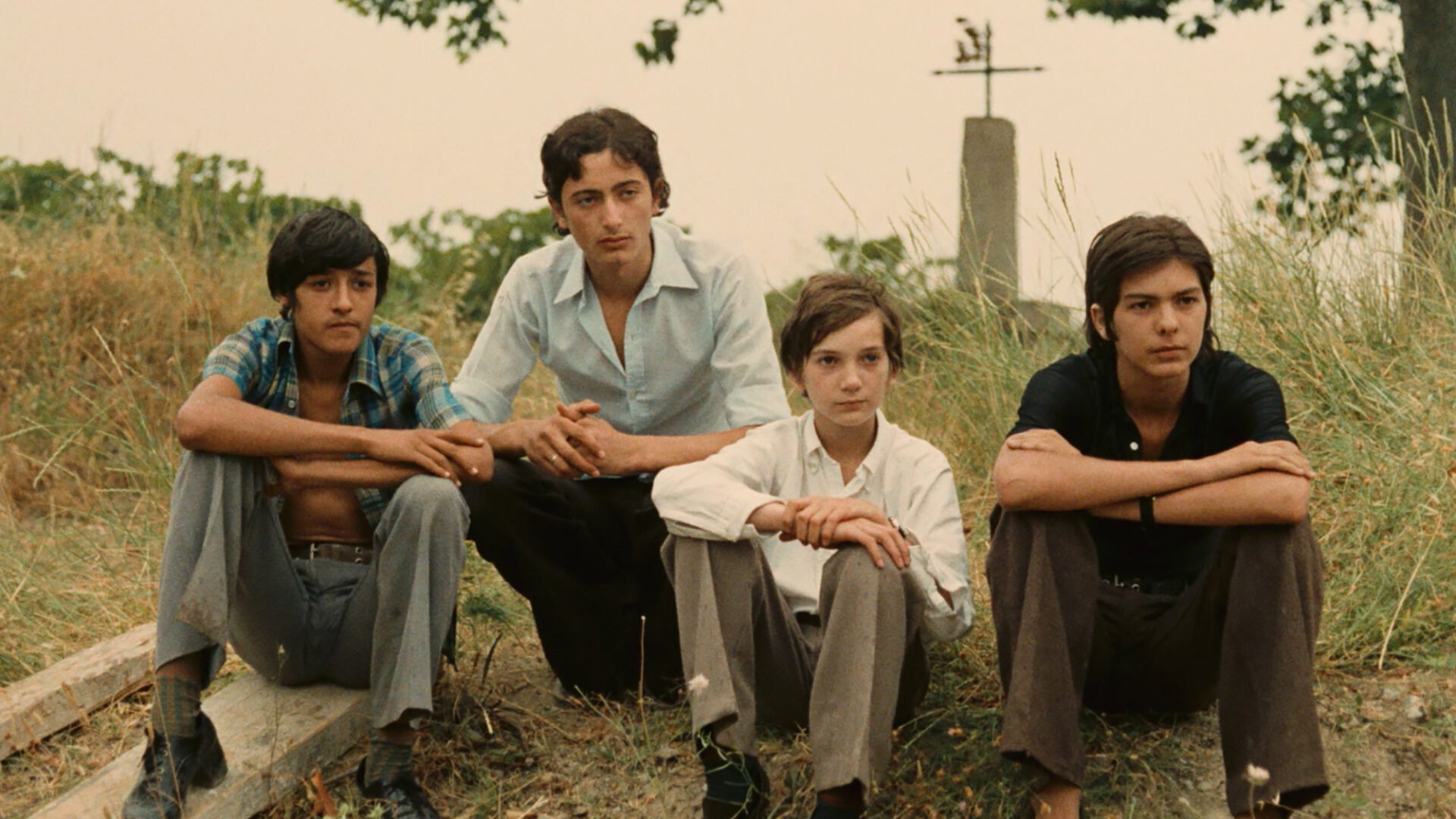From a quote usually (mis-)attributed to Jean-Luc Godard: “All you need to make a movie is a girl and a gun.” There are lots of girls in Mes petites amoureuses (My Little Loves), sometimes clustered together in choirs, or holding hands as they sway in pairs past a cafe, observed in intense quiet by young men still in their teens. In an early scene, the film’s 13-year-old protagonist Daniel presses against the young girl in front as they march solemnly into communion, an act of thrilling Catholic frottage described in blunt voice over and depicted without shame by a filmmaker, Jean Eustache, whose greatest work was called The Mother and the Whore. There seems to be beautiful prostitutes everywhere in 1970s France. There’s also a gun, a toy gun, wielded by a child, seen briefly in a single scene, and it might be a sarcastic quip in the direction of Godard’s (or whomever’s) famous formulation. With no real peers, Jean Eustache is a towering but adjacent figure to the Nouvelle Vague. He made two features, a handful of shorts, and died at 42 when he pointed a gun at himself.
From 1973, shot in black and white, The Mother and the Whore is an uncomfortably honest, drunkenly erotic picture of a love triangle between lost and beautiful souls in post-1968 Paris, and it remains lodged in most lists compiling cinema’s greatest ever feats. Released a year later, and making a rare appearance at Cinematheque for three screenings, Mes petites amoureuses inverts almost everything superficially significant to the previous film. The pale summer light of pastoral France replaces the chilliness of the city, captured in exquisite colour by cinematographer Néstor Almendros. An inscrutable pre-teen played by newcomer Martin Loeb delivers clipped rounds of interior monologue, in shocking contrast to the long and self-defeating riffs that spill from new wave icon Jean-Pierre Léaud in the previous film. As an autobiographical coming-of-age movie, Mes petites amoureuses gives itself over to pleasure, but on its own strange terms. It’s indulgent but unsentimental, with a strict narrative strategy plunked inside ravishing images, very obviously borrowing from Robert Bresson. Eustache poses and blocks his actors with unnatural economy, the dialogue is brusque and expressionless, deploying unfrilly bursts of information, yet the film runs over with heart and romance.
As such, Loeb mesmerizes as Daniel, giving him a placid exterior that nonetheless brims with curiosity, only occasionally exploding into view, as when he elects to punch the biggest kid in school just to see what might happen. When he’s uprooted from his grandmother’s rural home to live in the commune of Narbonne with his struggling mother—played by Fassbinder regular Ingrid Caven with an equivalent lack of outward affect—Daniel is put to work in a moped repair shop, meanwhile going to the movies, smoking, and learning the arcane negotiations of Gallic courtship from the older boys. Eustache had a prole’s stinging aversion to bourgeoise displays of expression, so there’s also a vein of class politics left over from The Mother and the Whore, but Mes petites amoureuses is a much gentler exercise in the things we’re not supposed to say anymore, like the frantic need felt by boys of a certain age to touch the mysterious boob. If it was ever vacuumed into the content grinder of modern streaming, which will never happen, Mes petites amoureuses would earn a trigger warning for its now ancient sexual politics, but whatever: the film is sweet, low-key, and true.
Stir, July 2023
